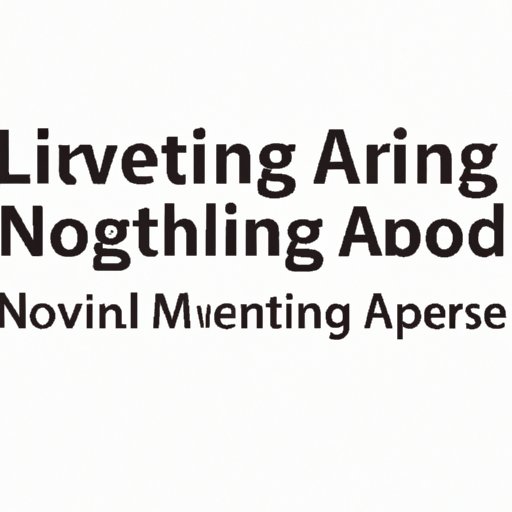
Introduction
Many seniors may be in need of assisted living but struggle with the high cost of these facilities. However, there are several strategies and solutions available for those seeking assistance with getting into assisted living with no money. In this article, we will explore different ways to cover the costs and find financial assistance for seniors in need.
Research Government Programs
Researching state or federal government programs can be a solution for those struggling with the cost of assisted living. These programs may offer financial assistance or vouchers to eligible seniors. Eligibility criteria, application process, and potential benefits vary depending on the program.
Potential helpful programs include the Medicaid waiver program, Supplemental Security Income (SSI), and the Program of All-Inclusive Care for the Elderly (PACE). These programs provide either partial or full coverage of the cost of assisted living.
Fundraising or Crowdfunding
Another option for those struggling to cover the costs of assisted living is fundraising. Setting up a donation page or asking for support from friends and family members can help cover some of the expenses.
Crowdfunding websites, such as GoFundMe, are also an option that has been successful for some seniors. Creating an emotional connection with the audience and providing updates on the senior’s situation can help garner more support.
Charities and Non-Profit Organizations
Charities and non-profit organizations offer another option for seniors in need. These organizations provide financial assistance or resources to those seeking help with the cost of assisted living.
The National Council on Aging (NCOA) and the National Association of Area Agencies on Aging (n4a) are examples of non-profit organizations that offer assistance and resources to seniors in need.
Negotiating with Facilities or Exploring Alternatives
Negotiating with assisted living facilities or exploring alternatives can also provide cost-saving solutions. Some facilities may offer discounts or waive certain fees if negotiations are made.
Shared housing arrangements or group homes can also offer cost-sharing solutions. These arrangements can provide social interactions and the chance to share expenses.
Planning Ahead and Preparing for Expenses
Preparing ahead for potential expenses associated with assisted living is essential for those needing financial assistance. Long-term care insurance and downsizing can help offset costs.
Downsizing to a smaller home can provide the funds necessary to pay for some of the expenses associated with assisted living. Purchasing long-term care insurance early on may also help offset some of the costs.
Exploring Alternative Care Options
Exploring alternative care options, such as home care or adult day programs, can also be a more affordable solution for some seniors. Home care can provide hands-on care while allowing the senior to stay in their own home. Adult day programs can offer social activities and supervision during the day.
Conclusion
There are several strategies and solutions to assist seniors and their families with getting into assisted living with no money. Researching government programs, fundraising, exploring alternative care options, negotiating with facilities and exploring alternatives, and planning ahead are all viable options. Seeking help from charities and non-profit organizations can also provide significant benefits. With a little research, planning, and perseverance, seniors in need can find the help they need to get into assisted living.




